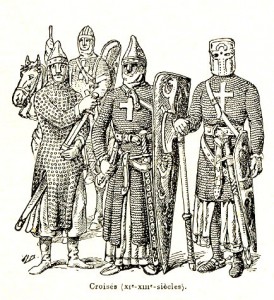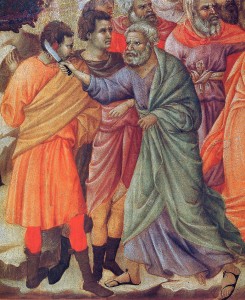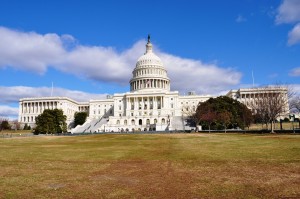Category Archives: politics
Desperate for a Little Character
To hear my blog post read aloud, just click the play button. If you’re reading this in an email, you may have to click here to hear the post on my site. (Also? I know I stumbled over/mispronounced a few words…but it was a really long blog post…and I just didn’t feel up to the task of re-recording it. I humbly ask for a bit of extra grace.)
Donald Trump is a crooked, underhanded con artist and…a spoiled, overgrown brat. – Matt Walsh on The Blaze
Trump mocks the disabled, calls women dogs, and advocates for the assassination of women and children. Hillary Clinton is a proven liar. They both have, in short, a lack of character. And people flock to them.
Why? Does it even matter? Is a person’s character at all important in this modern age or is it a relic of outdated morals? Character is more than merely important; it is vital to our society. It is important to people as individuals and it is important to society in its entirety.
When we can cheat and lie “just a little bit” and still think highly of ourselves, when we show our children that it is necessary to sometimes do insignificantly wrong things to get by, when it is more wrong to judge evil than to do evil, then we are in trouble. For our society to function well, we need people of character in leadership positions, from teachers and managers to mayors and governors.
What has happened in our world? Why do ordinary people care so little about acting in moral ways? Much of this dearth of character, this scarcity of virtue, comes from the rejection of the idea that truth is unchanging, that truth can be the same regardless of place or time. If truth is, at best, all relative and only a matter of perspective and, at worst, a social construct and simply whatever we make it to be, then why should anyone work to develop a character that may or may not be valid to anyone else? If there is no truth that we can deliberate over and discover together as a society (whatever that truth may be and wherever it may come from), we are left with, as Christian Cleric Richard John Neuhaus says, “power and propaganda and grievance and anger and caucuses and anti-caucuses and special interest groups and victims and vengeance.”
This concept of truth comes from our distinctly American philosophy of pragmatism (founded by William James, 1842-1910, who said that the true was only the expedient. Truth, in other words, is what works.). When society contains multiple competing ways of viewing the world, and when all of those ways are equally valid, then the only way to determine which viewpoint is most true is to determine which is most useful. If truth is simply what is most useful, then truth will change over time.
There is an assumption in much of society, in many of our universities especially, that we cannot keep society and relationships moving forward if we speak of one truth for all people because truth brings only conflict. Truth has become the loud uncle we are vaguely ashamed of, assuming that anything so divisive has no appropriate role in public life. When the biggest wrong that can be done in a society is to cause an argument, we are left with a society that vacantly agrees with every new opinion. When the biggest good a government can do is to smooth everything to the same level of truth, we are left with a government that changes policy for each group that shouts louder. When truth is sensible rather than stubborn, as trustworthy as a weatherman, we are left with a prediction for Snowpocalypse that leaves Walmart shelves empty but a reality of 60 degrees and sunny. Society is left to flounder on a foundation of shifting sand.
How did this happen? How did truth get hijacked and associated with the negative? How did truth become linked with religious totalitarianism and Osama bin Laden? How did it become shameful to declare a belief in truth, even simply the idea of truth, regardless of what that truth is? Part of the answer, I’m afraid, comes from us, the Church. We have a history of wielding the truth divisively, of tearing down and even destroying rather than creating and building up. We have used truth as an excuse for starting crusades and we have used truth as an excuse to look at our neighbor with contempt. Truth has become a weapon used to elevate ourselves by bludgeoning down all those we deem as “other”.
This becomes all the more baffling when we remember that Jesus, God in the flesh, claimed to be Truth. If we are condemning our neighbor with what we claim to be truth, perhaps it is not truly Truth we are wielding. Using truth as a magic wand to turn our neighbor into a stepping stone is a natural consequence when we who claim to follow Truth succumb to our world’s version of expedient truth. This is what Trump has done and this is why so many evangelicals support him. Trump is the embodiment of pragmatic truth, and when the Church has forgotten the words and life of Him who claimed to be truth, the Church is easily swayed toward truth that is useful, truth that serves a purpose, truth that turns character into a liability. As much as we might wish it, truth is not in our service, rather we who claim to be Christian are servants of the Truth in the person of Jesus.
If Jesus is, as He claimed to be, the Truth, we are given a truth that is unchanging, yet personal. We are given a truth that produces genuine, enduring character. When we follow Jesus as the Truth, living and speaking as He did, we find that God’s Spirit produces in us a character of love rather than a character of expediency. And when we are possessed of a character of love, we find that we are asked to proclaim this pure, loving truth to our world. More difficult, even, than proclaiming it, we are asked to live it out. Neuhaus tells us that it is now the Church’s task to learn how to assert truth in public “persuasively and winsomely and in a manner that does not violate but strengthens the bonds of civility”. He reminds us that it is our duty to do more than merely tolerate those with whom we disagree but to eagerly engage them, even pursue them, in love.
How? How do we declare and live truth without being divisive and unpleasant, causing strife, conflict, and wars? By remembering grace. Amazing grace. We can live out stubborn truth beautifully by remembering that we ourselves are unable to live up to our own standards and yet we are loved. When we despise or feel superior to anyone, when our goal is, as Trump claims, to “make America great again” by marginalizing the poor and disadvantaged, we derive more power from our own exalted sense of self-righteousness than from God’s grace. Living by this brand of truth that exalts ourselves is what poisons the truth with divisiveness. This is what Trump does: cause divisiveness by playing one group against another, by exalting us by means of demeaning them. Living out Jesus as truth can also be divisive, but a much different sort of divisive. Living out Jesus as truth produces a steady character of loving and caring for others. It is exalting others by humbling ourselves. This can be threatening, and therefore divisive, to those who have already exalted themselves, but it a way of living truth that is desperately needed in our world.
It is ageless, this genuine sort of character. It is what the early Christians did when they loved the poor, empowered women, and brought together the races and classes. It is how the early Church overran the Roman Empire when it wasn’t even attempting to gain political power. This is the sort of truth we need. The kind of truth that provides a firm and unchanging foundation for our society. One that will not allow people to helplessly flail but gives them the strength to build a society that lasts, one that cares for all of its members. Tim Keller says that this is the sort of truth that is “a God Who became weak, Who loved and died for the people Who opposed Him, forgiving them.”
Matt Walsh calls Trump a crook and a brat, essentially labeling him as someone who deceives others and who is himself deceived. It seems unbelievable, but this seems to be what many in our country are searching for. Someone like Trump or Clinton who does whatever is advantageous today, someone who manipulates and even creates truth to suit themselves and their supporters. If, instead, you are searching for someone who will lead by serving, someone who will follow Truth rather than create it, well, I’m afraid you probably won’t find that in the upper echelons of our country.
What, then, shall we do? Despair and give up on our country? Better yet by far than any vote you may cast, rather, become that sort of leader yourself in the world of your own influence. After all, presidents have never yet been able to save our country or her people. A country full of people who live lives full of Truth and Love, however? That sort of citizenry has been known to change the world.
Stop Slicing Off Ears
To hear my blog post read aloud, just click the play button. If you’re reading this in an email, you may have to click here to hear the post on my site.
It is early October.
An election is fast approaching, along with all of its requisite vitriol.
As emotions become more volatile, as words become our weapon of choice, I offer a word of warning. A plea, to myself as well as to you.
I’ve already spoken of how important it is for us, the Church, to be unified.
Not for us to agree on everything, but to love each other. To love each other no matter what.
This is so important that it was one of the last things Jesus asked of God before He was crucified.
Why is this particularly important right now, in this month, in this country?
As this election looms closer and larger before our wide open eyes, we are afraid.
And fear causes us to do crazy things, both to each other and to those around us who are outside of the Church.
You and I, we who claim to follow Christ, we are falling out of power.
The America of the past – the America of white, Protestant government, is becoming just that. A thing of the past.
Abortion.
Gay marriage.
Transgenders in the military.
Whatever you personally believe about these and other similar issues, most would admit that they are not generally promoted as God-sanctioned by the Evangelical church as a whole.
Just a look at these issues in our country today strips away the illusion that we are in control.
Many are fighting back against this. “Make America great again!” “Take back America!”
We as a Church are good at fighting.
Throughout our history, we have fought wars, both collectively and personally, against anyone who tries to take away our power.
Our earthly power, that is.
You can look as far back as the first twelve leaders of our church, as far back as Peter, to see our blind tendency to misinterpret what Jesus actually seems to teach.
When Jesus speaks of His kingdom, we assume that He means a kingdom here on earth.
A kingdom that forces everyone to live under God’s rule.
The sort of kingdom we seem to want America to be.
This is what Peter believed. Jesus spoke of the kingdom of God and how close it was, and Peter decided to help it along by using his sword to start slicing off ears.
Jesus, however, picked up that ear, placed it back onto it’s owner’s head, and walked quietly off to meet His death.
We are losing power in this country, and perhaps this is a good thing.
The kingdom of God has never increased by force; rather, the kingdom seems to expand most quickly when those who are in power are against it.
Jesus speaks over and over again about His kingdom coming through the humble, the weak, the foolish. He is adamant that the kingdom of God is not about force or any kind of earthly power.
Jesus tells His disciples in Matthew that all of the kings and rulers exercise their authority in one way but you, you who call yourself My disciples, are to do things another way.
He tells them that you are to bring forth My kingdom by becoming a servant, by giving up your life for all.
Everything we do to live out God’s kingdom here on earth must be done under the shadow of the cross.
Perhaps we should stop fighting to regain political power and start figuring out how to further God’s kingdom in this new America. Perhaps we should remember that God’s kingdom grows best one soul at a time through lives lived in quiet love and service.
Perhaps we should stop slicing off ears and instead begin the work of healing by dying to ourselves as we live as Jesus did. We can start by loving each other.
Art credit: Photograph of cathedral by Kirk Sewell; Image of the Croisés from 1922; St. Peter Cuts the Slave’s Ear by Duccio di Buoninsegna
Christ in…Politics?!
One of the ideas in which I believe strongly, one of the basic premises, in fact, behind the writing of this blog, is that there can be no division between sacred and secular. There can be no segmenting out pieces of life, saying that this is for faith and that is not.
For by Him all things were created, in heaven and on earth, visible and invisible, whether thrones or dominions or rulers or authorities—all things were created through Him and for Him. And He is before all things, and in Him all things hold together. ~ Colossians 1.16-17
If all of life is under the authority of Christ, then the opposite supposition is also true, that there is nothing that is outside of Christ. The point seems inarguable, yet it seems easier to say that all is in Christ than it is to begin to name specific arenas that therefore matter to Him.
If singing hymns in church is in Christ, then scrubbing filthy toilets is also in Him.
If working in the food pantry is in Christ, then creating a PowerPoint presentation for work is also in Him.
If learning about Old Testament Prophets is in Christ, then politics is also in Him.
It seems unreasonable, yet the conclusion is inescapable. If in Christ all things hold together, then there can be nothing that falls outside of His realm of influence.
If politics, too, must fall within the confines of our faith, then we should spend time considering the best way that our land should be governed. Especially when we live in a land that gives us a voice. Especially when we live in a year that is an election year.
And so I have been pondering and wondering. None of my wonderings have produced anything that I could change, yet I still believe that the process of considering our country’s politics in light of the way God created life to work is valuable.
There is much in the Bible about teaching and training, about people being gifted to do specific tasks, about being and doing what you were created to be and do.
All of which makes me wonder if the idea of citizen governance is as good an idea as our founders believed. I understand, I think, that part of the reason behind term limits and bringing in ordinary citizens to do the job for a time is to prevent anyone from taking and keeping too much power.
It is easy to become drunk on the trappings of power.
Or so I’ve heard.
Yet would we want our children to learn under someone who just comes in and teaches for a few years and then is replaced by another community member? Would anyone trust a citizen surgeon?
Then why do we trust a job like governing our country to amateurs?
What if we treated politics like we treat other careers? What if we had a governing body that developed training and schooling requirements? What if people who have the talent for governance could attend a study program and go through an apprenticeship? What if that same governing body helped the governors of our land decide when it was time to retire, like the governing body that decides when it is time for us to give up our driver’s license?
I know that there are probably hundreds of issues that would make this improbable. I understand that none of this is likely to happen.
Yet isn’t it better to think through something as important as how our country is governed rather than just falling in line with how it has always been done?
If part of loving God means loving Him with all of your mind, then shouldn’t we use our mind to consider how all things would be best under His authority?
Even if it never comes to pass?
I believe so.
Photography credits: U.S. Capitol by purplepic; Flag on building by Robert Linder; Flag backlit by Robert Linder
Holiness or Justice?
I listen to them argue, watching as each shakes his head and smiles condescendingly while the other is speaking passionately about what he thinks is best.
Surface level respect doesn’t seem to go very far. Those who support each one seem to vilify the other, speaking ugly words of disrespect and hate.
Where should we who follow Christ fit in?
One group is concerned with personal morality, the other is focused on social justice.
Are we speaking of parties or churches? Is it telling that we sometimes cannot discern a difference?
When we bring religion into politics, can it turn people away from Christ? If I cannot agree with one set of ideas, yet that same idea set is anchored to Jesus, I may conclude that following Jesus is impossible.
Surely this breaks the heart of God.
Yet surely one passion is more important. Surely either personal morality or social justice should be our highest priority.
If I have a passion for justice, personal holiness may be simply a distraction.
If I desire to cultivate personal holiness, I may yet ignore working for justice in our world.
Perhaps, just perhaps, a balance is needed.
In describing what brings the wrath of God, Amos says
They trample on the heads of the poor as upon the dust of the ground and deny justice to the oppressed. Father and son use the same girl and so profane my holy name. ~ Amos 2.7
Personal holiness or justice in our world?
When describing the wickedness of Israel, Isaiah says
…He looked for justice, but saw bloodshed; for righteousness, but heard cries of distress. Woe to you who add house to house and join field to field till no space is left and you live alone in the land…Woe to those who rise early in the morning to run after their drinks, who stay up late at night till they are inflamed with wine. ~ Isaiah 5.7-8, 11
Personal holiness or justice in our world?
Jesus, when teaching the crowds how to live, spoke of refraining from lust, adultery and divorce. He also spoke of giving to the poor, refraining from overwork and resisting the siren call of materialism. All in the same chapter of the Bible. ~ Matthew 6
Personal holiness or justice in our world?
Perhaps, just perhaps, we should not choose one to the exclusion of the other. Perhaps we should strive to attain both ideals, following all of what Jesus teaches us rather than excusing away half of His commands.
And what should we do with each other? What do we do with our brother or sister who insists that another course is highest?
Perhaps we should speak of that next week.











